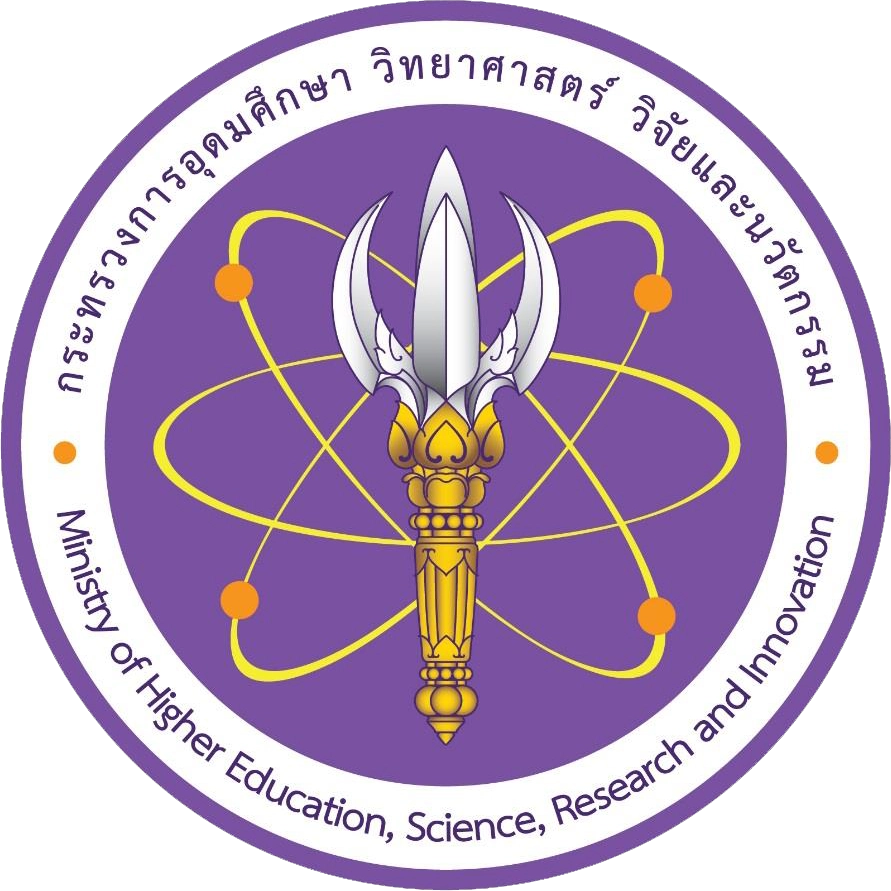ชื่อโครงการ
การวิจัยเชิงปฏิบัติการอย่างมีส่วนร่วมในการสร้างการประกอบการเกษตรอินทรีย์ในเมืองบนฐานเศรษฐกิจหมุนเวียนเพื่อพัฒนาให้เป็นย่านนวัตกรรมสีเขียวของกรุงเทพและปริมณฑล 5 พื้นที่คำสำคัญ
การประกอบการด้านการเกษตรในเมือง,ผู้ประกอบการเกษตรอินทรีย์,การบริหารธุรกิจการเกษตร เมืองบนฐานเศรษฐกิจหมุนเวียน,การแปลงเศษอาหารให้เป็นปุ๋ยหรือวัสดุปรุงดิน,ดินอินทรีย์ที่ดูดซับคาร์บอนไดออกไซด์จากการหมักเศษอาหาร,เครือขายชุมชนนวัตกรรมสีเขียวจากการเกษตรในเมือง,Urban Farm Greenovative Community Networkบทคัดย่อ
โครงการการวิจัยเชิงปฏิบัติการอย่างมีส่วนร่วมในการสร้างการประกอบการเกษตรอินทรีย์ในเมืองบนฐานเศรษฐกิจหมุนเวียนเพื่อพัฒนาให้เป็นย่านนวัตกรรมสีเขียวของกรุงเทพและปริมณฑล 5 พื้นที่ มีวัตถุประสงค์เพื่อ 1) สร้างการประกอบการเกษตรอินทรีย์ในเมืองบนฐานเศรษฐกิจหมุนเวียนจนเกิดเป็นการสร้างการประกอบการธุรกิจขนาดย่อย ให้ได้อย่างน้อย 5 พื้นที่ในกรุงเทพมหานครและปริมณฑล 2) สร้างเครือข่ายเกษตรอินทรีย์บนฐานเศรษฐกิจหมุนเวียนด้วยเครื่องมือการสร้างคุณค่าร่วมจากการสร้างอรรถประโยชน์ของพื้นที่ของตนเองให้เกิดการพัฒนาไตรสุทธิ ด้านเศรษฐกิจ สังคม และ สิ่งแวดล้อม และ 3) สรุปชุดความรู้ด้านการประกอบการเกษตรอินทรีย์ในเมืองบนฐานเศรษฐกิจหมุนเวียน ด้วยวิธีการดำเนินวิจัยเชิงปฏิบัติการแบบมีส่วนร่วม คือคัดเลือกกลุ่มเป้าหมายที่เป็นคนกรุงเทพฯ และปริมณฑล จำนวน 40 คน ซึ่งเป็นพนักงานของบริษัทที่เข้าร่วมโครงการและผู้ประกอบการรายย่อย เข้าร่วมการเรียนรู้ด้วยกระบวนการ Active Learning การประกอบการเกษตรอินทรีย์ในเมืองบนฐานเศรษฐกิจหมุนเวียน จากฟาร์มต้นแบบ Wastgetable และนำความรู้ดังกล่าวไปปฏิบัติในพื้นที่ของผู้เรียน โดยมีวิธีเก็บข้อมูลแบบผสมผสาน นับตั้งแต่ การสังเกตการณ์ การใช้แบบสอบถาม การสัมภาษณ์เชิงลึก และการเก็บข้อมูลผลผลิตที่เกิดขึ้น อีกทั้งยังมีการถอดบทเรียนและสรุปการเรียนรู้ร่วมกันระหว่างคณะนักวิจัย ทั้งผู้เรียนรู้ พี่เลี้ยง และนักวิจัยหลัก ผลการวิจัยในเรื่องการสร้างการประกอบการเกษตรอินทรีย์ในเมืองบนฐานเศรษฐกิจหมุนเวียนนั้น พบว่าผลจากการเรียนรู้การประกอบการดังกล่าว ทำให้เกิดการประกอบการทั้งหมดจำนวน 19 ฟาร์ม บนพื้นที่ทั้งหมด 2,602 ตารางเมตร มีการจัดการขยะเศษอาหารจากจุดกำเนิด ด้วยการสร้างมูลค่าเพิ่มเป็นปุ๋ยหมักจากเศษอาหาร 148,252 กิโลกรัม และมีการผลิตผักโดยประเมินผลรวมประมาณ 6,208 กิโลกรัม เป็นผลทางสังคมจากการแจกจ่ายผลผลิตทั้งหมดไปยังครอบครัว ญาติ และเพื่อน ซึ่งสามารถประเมินมูลค่าเศรษฐกิจ จากราคาผักต่อกิโลกรัมละ 150 บาท ได้เท่ากับ 931,190 บาท และประเมินผลกระทบทางสิ่งแวดล้อมด้วยการคำนวณการลดการปล่อยก๊าซเรือนกระจกด้วยตารางคำนวณขององค์การก๊าซเรือนกระจกด้านการเกษตรอินทรีย์ ในระยะเวลา 4 เดือน ตั้งแต่มกราคม ถึง เมษายน 2565 จากการมีนำขยะเศษอาหารมาหมักเป็นปุ๋ยดังกล่าว มีปริมาณการลดการปล่อยก๊าซเรือนกระจกได้ถึง 94,317 kgCO2eq อันเป็นผลจากเครือข่ายเกษตรอินทรีย์บนฐานเศรษฐกิจหมุนเวียนที่ร่วมกันเรียนรู้ และร่วมพัฒนาไตรสุทธิ ด้านเศรษฐกิจ สังคม และ สิ่งแวดล้อม ให้เกิดขึ้น จากโครงการนี้ เครือข่ายเกษตรอินทรีย์ฯ ยังได้ร่วมกันนำผลการเรียนรู้จัดกิจกรรมเทศกาลหมุนเวียนเปลี่ยนเมืองครั้งที่ 1 ตอน “ชอมจึงหมัก รักจึงปลูก” ณ หอศิลป์วัฒนธรรมกรุงเทพมหานคร ในวันที่ 29 มีนาคม ถึง วันที่ 10 เมษายน 2565 ทำให้เครือข่ายเกษตรอินทรีย์ฯ ได้ร่วมเรียนรู้การตลาดด้วยการรู้จักและนำเสนอผลผลิตตลอดห่วงโซ่อุปทานให้กับลูกค้า อีกทั้งยังได้มีการสังเคราะห์ชุดความรู้จากการพัฒนาโครงการวิจัยฯ เป็นหนังสือ “กะเศษแปลงร่าง” โดยมีเนื้อหาจากกระบวนการเรียนรู้ด้วยการลงมือปฏิบัติของเครือข่ายเกษตรอินทรีย์ฯ และผลการเรียนรู้ ตลอดจนเสียงสะท้อนจากการเรียนรู้ของเครือข่ายฯ ข้อเสนอแนะจากการวิจัยนี้ มี 3 ระดับ คือ ระดับผู้ประกอบการ เกษตรอินทรีย์ในเมืองบนฐานเศรษฐกิจหมุนเวียน เป็นการผลิตที่ไม่พึ่งปัจจัยภายนอก การพัฒนาตนเองจึงเป็นเรื่องสำคัญ การเรียนรู้จากการลงมือทำ ช่วยให้ผู้ประกอบการมีความมั่นใจ อย่างไรก็ตามก็ไม่ควรติดยึดกับชุดความรู้ หากต้องเรียนรู้และพัฒนาในลักษณะเครือข่ายอย่างต่อเนื่อง ระดับชุมชน รัฐควรส่งเสริมจัดหาพื้นที่สร้างอาชีพสีเขียวที่มีความสร้างสรรค์และเป็นอนาคตใหม่ให้กับคนเมือง จากการส่งเสริมการจัดการขยะต้นทางอย่างเป็นระบบ และระดับประเทศนั้น การทำเกษตรนี้เป็นรากฐานสำคัญของระบบอาหารในเมือง ที่ช่วยลดการสูญเสียตลอดห่วงโซ่อุปทาน รัฐจึงควรพิจารณามาตรการทางภาษีที่ดินเพื่อเป็นแรงจูงใจการทำเกษตรอินทรีย์ในเมืองบนฐานเศรษฐกิจหมุนเวียนในลักษณะโครงการนี้ คำสำคัญ: เกษตรอินทรีย์ในเมือง เศรษฐกิจหมุนเวียน การวิจัยเชิงปฏิบัติการอย่างมีส่วนร่วม การประกอบการ เครือข่ายเกษตรอินทรีย์ในเมือง
Title
Participatory Action Research on Circular Urban Organic Farm Businesses towards a Development of Five "Greenovative" Communities of BangkokKeywords
Urban Organic Farming,Urban Agri-Entrepreneurs,Circular Economy,Food Waste Management,Carbon sequestration (keeping carbon out of air and in soil),Circular Economy from Upcycled Food Waste to Urban Farm Management,Carbon Sequestration from Food Waste Upcycling to Fertilizer,Urban Farm Greenovative Community NetworkAbstract
A Participatory Action Research on Building Circular Urban Farming (CUF) Businesses (based on Circular Economy Principle) towards a Development of a “Greenovative Community in Five Areas in Bangkok and its Municipality aims to 1) Build Circular Urban Organic Farm Businesses in at least five areas in Bangkok and its Municipality, 2) build the circular urban farming business network by applying to create shared-value from upcycling their food waste and optimizing their space into green and edible farming business and measuring its triple bottom line profits; namely economy, society and the environment; and 3) conclude and synthesize the knowledge set on urban organic farming based on the circular economy. 40 selected participants, including ten employees of five participating companies and 30 urban farming interested individual participants selected 260 enrolled candidates in the 8-month Circular Urban Farming Business Incubation Program, attended the ten-week online CUF theory online course and the ten-week CUF on-site active learnings at the prototype he Wastgetable model farm. After these five months of the active learning process. Each has applied that knowledge to practice in the learners area. During the four-month intervention of the researchers and five mentors to each farm after each participant start each farming, the researchers and the mentors employed data collection methods from observation questionnaire use in-depth interviews in collecting the resulting production and business data. After analyzing the findings of the data collection, the researcher team conducted three lessons learned and a reflection process and summarized and shared its conclusion among the participants in the Circular Urban Farming Business Fair on 2-3 April 2022 and published the proceeding in the final report and the Journey to Circular Urban Farming Handbook. The research project revealed that a total of 19 farms on a total area of 2,602 square meters with food waste management from the origin was built, 148,252 kgs of food waste were composted and upcycled to 75,220 kgs of organic fertilizer, and approximately 6,208 kgs of vegetables, with the estimation of 931,190 baht (average of 150 baht/kg) revenue if they were sold, were grown during January to April 2022. These results socially benefited directly to the reduction of vegetable costs among the 19 CUF families, relatives, and friends. With respect environmental impact of the CUF activities in 4 months from January to April 2022, 94,317 kgCO2eq were calculated by using an organic farming GHG Reduction formula developed by Thailand Greenhouse Gas Management Organization (TGO) from upcycle food waste to compost into such fertilizers. These results were also translated into triple bottom line profits in three impacts; namely economics—household expense reduction, society-action to create the circular urban farming ecosystem and Circular Urban Farming Network, and environment—food waste compost, to arise from this project. CUF Network also brought together the learning results of organizing “the 1st Episode of CUF Fair: Loving Compost from Food Waste and Vegetable Growing” at the Bangkok Cultural Art Center on March 29 to April 10, 2022, causing the CUF network to learn about marketing and presenting products throughout the supply chain to customers. In addition, a collection of knowledge from the research project development has been synthesized into a book, “The Journey to Circular Urban Farming Business,” with content from the hands-on learning process of the Circular Urban Farming Network. There are 3 levels of recommendations from this research. At the CUF entrepreneurial level of the Circular Urban farming, CUF entrepreneurs should 1) sort out as much as production materials within their neighborhood in order to uphold circular economy principal in optimizing any unused resources and avoiding transportation or carbon footprint of the materials from other provinces, and 2) since Circular Urban Farming is new and the traditional agriculture context might not fit well with the urban setting, they should learn by doing and experimenting by using local materials and continue their self-development in applying the traditional agriculture knowledge to grume their new applied knowledge and confidence and 3) They should share their knowledge more often under the Circular Urban Farming Network. At the community level, the state should promote and provide spaces to create creative green careers and a new future for urban residents by promoting composting food waste within each community. Lastly at the national level, with respect to circular urban farming as the cornerstone of the urban food system, food waste composting helps reduce food losses and food waste throughout the supply chain; the government should consider any new scheme of land tax measures as an incentive for circular urban farming businesses. Keywords: urban organic farming based on the circular economy, circular urban farming, Participatory action research, social and environment entrepreneurship, Circular Urban Farming Network


